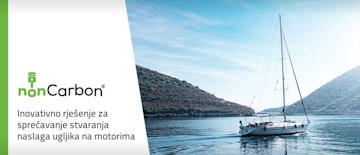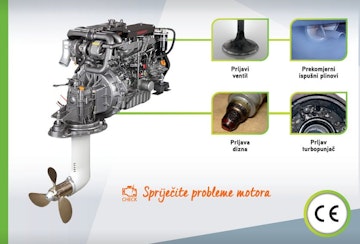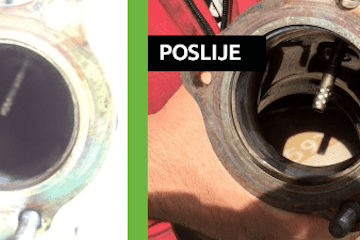Innovative and Revolutionary Methods Towards a Cleaner Environment

It is always great when innovative ideas help improve our way of life, but it is even better when those methods are safe for our environment. Recently, Green Sail had the pleasure of interviewing a company whose services and techniques are extremely revolutionary and beneficial for the nautical business sector.

nonCarbon is a company whose methods of cleaning carbon deposits from the vehicle and boat engines are non-invasive, simple, fast and convenient, and, at the same time completely environmentally friendly. The nonCarbon system uses only water and electricity. This makes it a completely unique system on the market because it excludes using chemicals and leaves no harmful by-products, traces or impurities behind.
Q: When was nonCarbon established and what makes your service so unique?
A: Jubeja d.o.o. company was founded in Zagreb in 2013 working under the nonCarbon brand. Our service is indeed special due to the fact that we do not use chemical additives and there is no damage to the engine after cleaning.
Q: Can you tell us a little about the process of cleaning carbon deposits in vehicle and boat engines?
A: The method uses distilled water which is decomposed by the process of electrolysis into gaseous oxygen and hydrogen (oxy-hydrogen). The process is such that we connect to the engine’s air intake system, and release oxy-hydrogen gas into it. This gas has such properties that it dissolves carbon deposits, binds them, and burns them in the engine chamber, which results in the water vapor exiting through the air exhauster.

Q: What would you single out as the biggest environmental contribution of your service?
A: The biggest environmental contribution is the fact that by cleaning the interior of the engine, we reduce the emissions of gases, and especially Nitrogen Oxide (NOx), which has been proven to even cause cancer.
Q: Can you tell us more about reducing gas emissions after cleaning the engines by using a non-carbon method?
A: The non-carbon method reduced gas emissions after cleaning the engines. In fact, harmful emissions are reduced by up to 80%.

Q: How does your service contribute to reducing fuel consumption in vessels?
A: Carbon deposits have an effect on higher fuel consumption; after cleaning the engine, fuel consumption is reduced by up to 10%. The reason is that after the cleaning the engine is done, the engine has more power and therefore the engine is achieving the same speed with less rotations.
Q: The underwater noise caused by various human activities is a serious threat to life in the sea. Does the engine vibration also decrease after cleaning?
A: Yes, it does. The cleaning reduces engine vibration and keeps the engine calmer and quieter.
Q: Product life affects resource use and waste generation. How do you extend engine life?
A: Carbon deposits affect the life of the engine, but after cleaning of these carbon deposits the parts inside the engine will break less frequently.
Q: Finally, what do you think, does current technology development take sufficient account of health and the environment? What should be improved in today's technology practices?
A: New technologies take into account both health and the environment. Older vehicles and vessels are actually the problem because they do not have these systems installed. The nonCarbon device has been manufactured precisely because of this so that it can have a positive effect on the health of all living things and the environment itself.